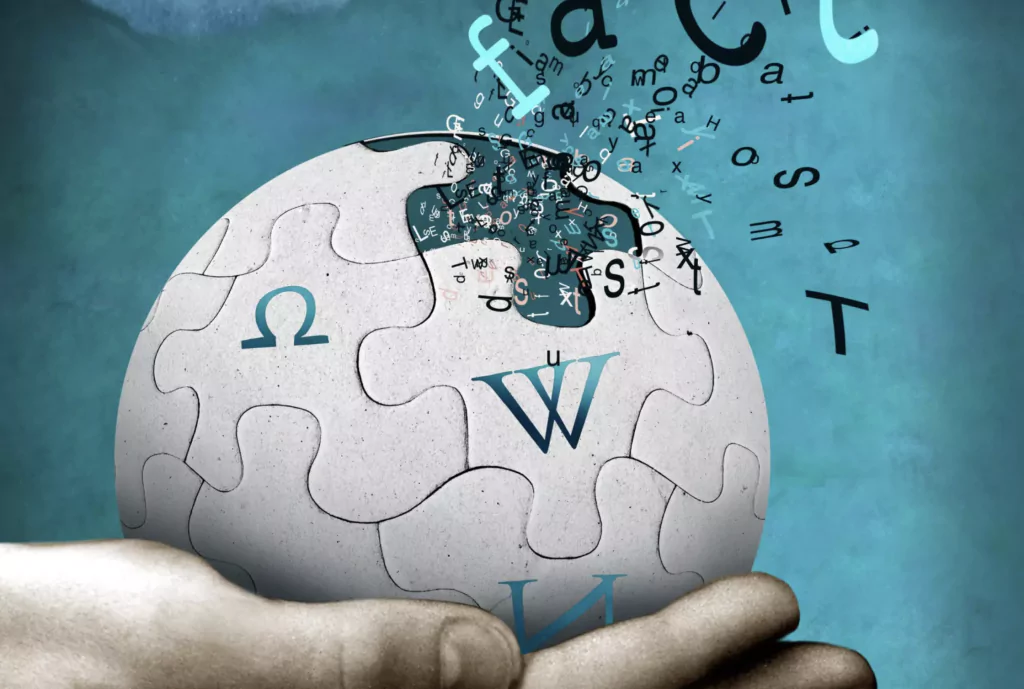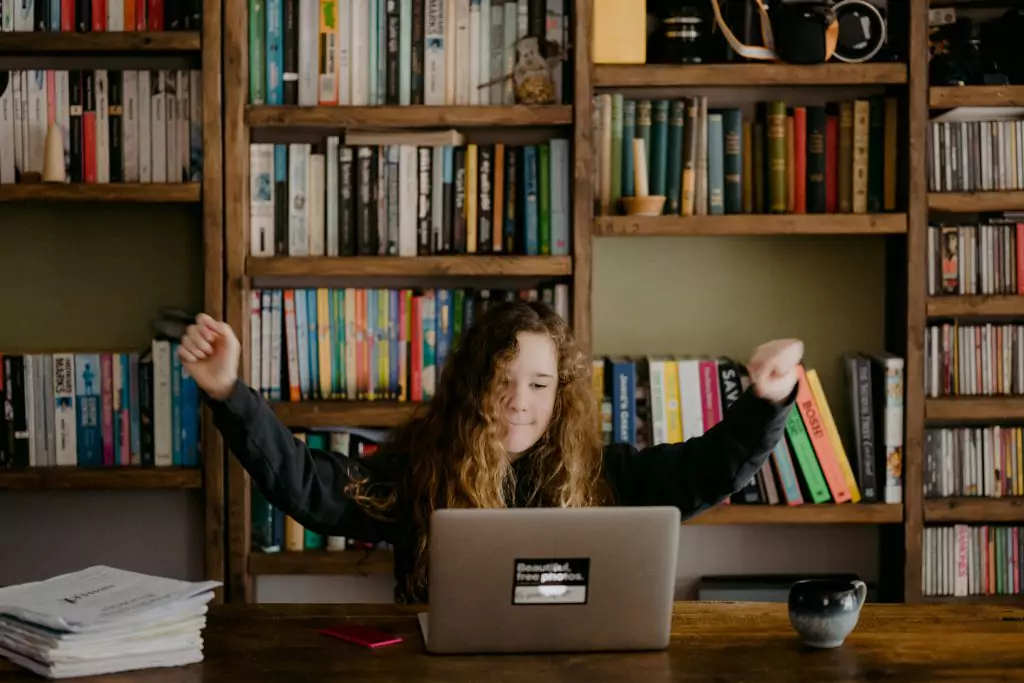
Key takeaways:

✅ AI Essay Writer ✅ AI Detector ✅ Plagchecker ✅ Paraphraser
✅ Summarizer ✅ Citation Generator
- Wikipedia offers a wealth of basic information on a wide range of topics
- Notes and references in Wikipedia articles provide a starting point for deeper research
- Students can contribute to Wikipedia, improving articles and engaging in digital literacy
- Wikipedia has issues with systemic and gender bias, as well as limitations in citation requirements
- Articles change frequently, and not all cited sources are open-access.
Wikipedia is a free online encyclopedia written collaboratively by volunteers and run by the nonprofit Wikimedia Foundation. It was launched in 2001 and has since grown to become one of the most widely used sources of information on the internet. There are 10 rules and five pillars for contributing to the site. The five pillars establish Wikipedia as a free online encyclopedia, with articles that are accurate and cite reliable sources, and editors – called Wikipedians – who avoid bias and treat one another with respect. Its combination of breadth, depth, and openness makes it an attractive source of information for students doing academic research.
In an article published by The Conversation, two research and instruction librarians, Bridget Retzloff and Katy Kelly from the University of Dayton, share their opinions of how Wikipedia can be an important resource for background information, topic development, and locating further information, and what drawbacks of Wikipedia exist that should be considered to avoid potentially unpredictable outcomes.
Policies and guidelines are established on top of the five fundamental pillars of Wikipedia to provide guidelines for writing and editing. The guidelines outline best practices that should be followed, including rules against paid editing and vandalism, which refers to any editing that intentionally damages the article by making it malicious, offensive, or defamatory.
The following are the primary advantages and disadvantages of using Wikipedia as a source of information in academic research for college students, although anyone can use these guidelines when utilizing Wikipedia.
Strengths of Wikipedia
1. Provides basic information on a wide range of topics
One of the most significant strengths of Wikipedia is its ability to provide basic information on virtually any topic. The site’s standardized article layout and hyperlinks to other articles make it easy for readers to quickly track down the basics of their topic. This is especially helpful for students who come to the library with a chosen topic but little knowledge about it. Before searching for scholarly articles and books, students can use Wikipedia to learn about keywords and concepts related to their case. This ensures they can try a variety of words and phrases in the catalog and databases as part of their search strategy.
2. Notes and references encourage readers to go deeper
Wikipedia’s “Notes” and “References” sections encourage readers to go deeper by providing valuable information, such as important scholars on the topic. Here, readers can find out who authored the various sources used in the article, as well as the citation information needed to locate additional books and articles. This makes it easier for students to find other references for their research and assignments.
3. Students can be editors
Another power of Wikipedia is that students can write content, share information, and properly cite scholarly sources by becoming editors. This is especially useful for students who want to engage in digital literacy and learn how societal knowledge is constructed and shared. By becoming editors, students can also expand Wikipedia’s content by sharing information that might otherwise be behind a paywall. In addition, Wikipedia edit-a-thons are events where people gather to edit articles on topics of interest, or that might otherwise be ignored.

Although Wikipedia can be a valuable research tool, it has its limitations. While the advantages of using Wikipedia as a source of information in academic research are evident, it is important to also consider the weaknesses of the site. This can help users decide when to use Wikipedia and how to supplement it with other sources to ensure accuracy and completeness.
Weaknesses of Wikipedia
1. Systemic and gender bias
One of the main weaknesses of Wikipedia is the crowdsourced nature of the site, which can lead to the exclusion of some voices and topics. Although anyone can edit, not everyone does, and this can lead to systemic and gender bias. For example, Wikipedia acknowledges that most contributors are male, few biographies are about women, and topics of interest to women receive less coverage. This dynamic can be observed in other areas of underrepresentation, especially race and ethnicity. Nearly 90% of U.S. Wikipedia editors identify as white, which leads to missing topics, perspectives, and sources.
2. Citation requirements can exclude important sources
While Wikipedia requires that information included in an article be published by a reliable source, this can be limiting for topics that have not received coverage in newspapers or scholarly journals. For some issues, such as Indigenous peoples of Canada, oral history may be an important source, but it cannot be cited in a Wikipedia article. This means reliable sources may be excluded from Wikipedia articles, making them incomplete and potentially misleading.
3. Not all cited sources are open-access
Since citations drive traffic and revenue, academic publishers have a vested interest in their publications being cited, whether or not they are freely available. Some sources cited in Wikipedia articles may be behind paywalls. This can make it difficult for students to access references cited in Wikipedia articles, especially if they are not affiliated with a university or do not have access to a library with full-text access to scholarly sources.
4. Articles change frequently
While timely updates are an advantage of Wikipedia, the impermanence of articles can make them difficult to rely on for information. Students need to keep track of the date they find a piece of information on Wikipedia, as it might not be the same when they return. This is because articles change frequently, and keeping up with the latest changes can be challenging. The “Talk” page of a Wikipedia entry provides a discussion of changes to the article, and the Internet Archive Wayback Machine can be used to view previous versions.
While Wikipedia has its limitations, it can be a valuable starting point for students conducting research. By understanding its strengths and weaknesses, students can make informed decisions about when and how to use Wikipedia as a source of information. Instructors and librarians can also play a crucial role in guiding students on how to effectively utilize Wikipedia for their academic work, ensuring they maximize its benefits while being aware of potential pitfalls.
Related stories:
Virginia School Official Suggests Closing Libraries Amid Book Controversy
Interactive Test Prep Strategies: Helping Students Succeed in Assessments and Beyond
Duolingo vs. Immersion: The Great Language Learning Debate
Follow us on Reddit for more insights and updates.





Comments (0)
Welcome to A*Help comments!
We’re all about debate and discussion at A*Help.
We value the diverse opinions of users, so you may find points of view that you don’t agree with. And that’s cool. However, there are certain things we’re not OK with: attempts to manipulate our data in any way, for example, or the posting of discriminative, offensive, hateful, or disparaging material.